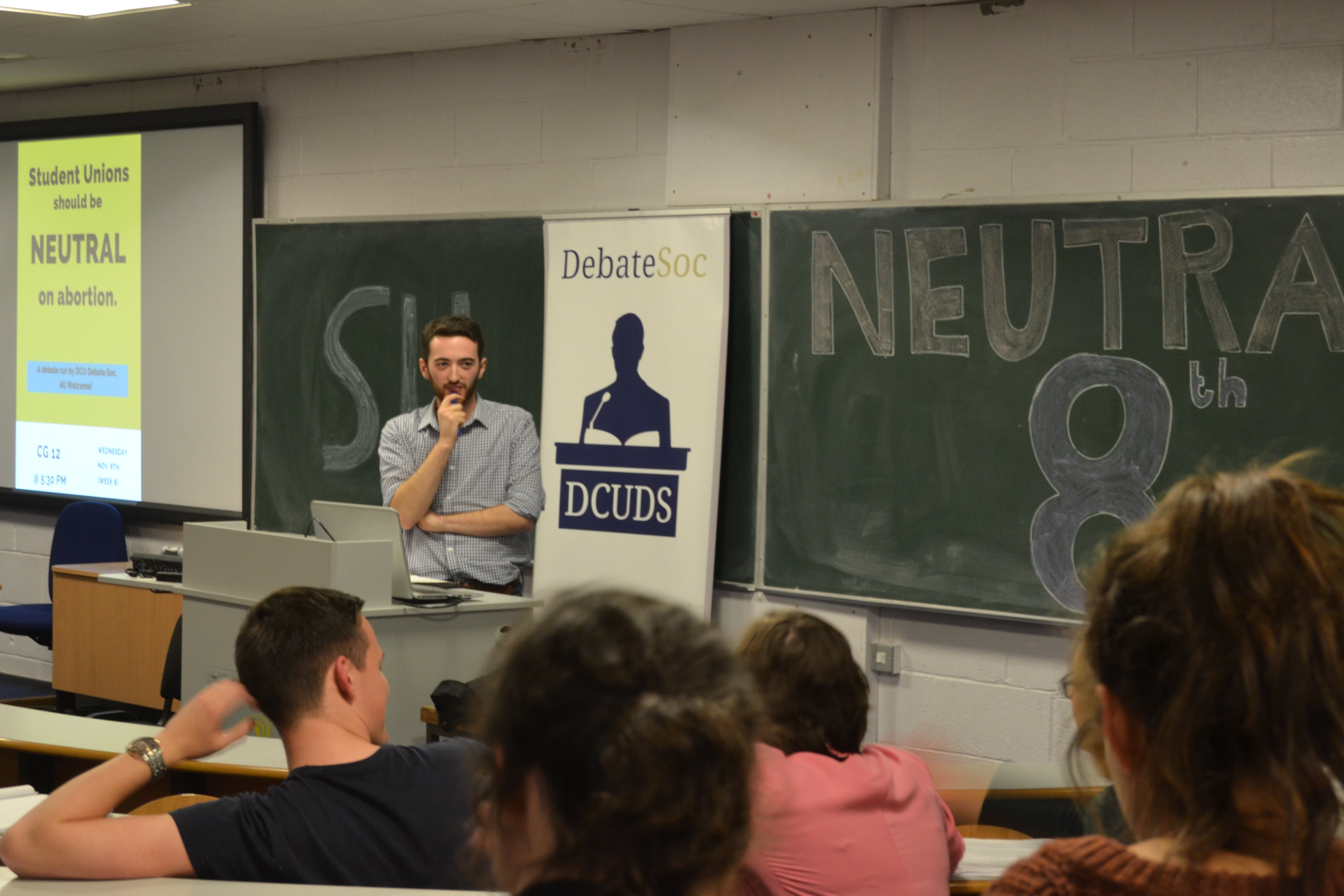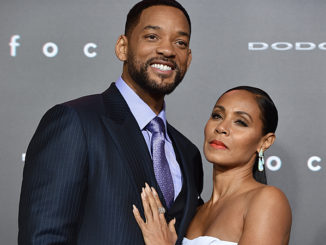
[dropcap]T[/dropcap]here was an empty silence in the halls of the Henry Grattan building on the evening of 8th November. The lecture halls had been cleared out and the only solitary sounds were the shuffling of feet as the last remaining students treaded towards the exit.
But something was happening in one of the lecture theatres along the Grattan’s empty corridor. It didn’t draw a mass crowd, but this event concerned every student in DCU. It concerned every boy and girl who feels occupied with their college social surroundings – and every boy and girl who doesn’t.
Particularly, it concerned college students’ unions, who are now caught in a tangled skein of misapprehension and political debate. The theme for this month’s Debate Society event was whether the SU should take a neutral stance on abortion. Though there were only two opposing sides, a myriad of opinions was expressed.
Unfortunately, the results of the debate were not binding, but a platform for discussion was opened and students expressed their strong dissatisfaction with the institution that is meant to represent their fundamental interests.
A traditional ‘union’
What is the purpose of a union?
Traditionally, they existed to safeguard workers’ rights against exploitation. Their function is to represent the welfare of employees against third-parties who threaten to jeopardize their professional wellbeing.
But a union will only address issues that fall into its professional scope. Wages and working conditions are issues of direct concern. So are health risks. What isn’t included are personal issues that don’t derive from any aspect of the members’ working occupations.
For example, the National Bus and Rail Union will not help their members lobby for lower home mortgage interest rates (as much as it may want to). Not only is the topic outside their jurisdiction, but their involvement in such an issue would trigger mass confusion about what they are.
Likewise, the function of a students’ union is to represent all students. It must represent their educational and professional welfare against opposed interests – but it must do so equally. Most importantly, it should not do it in a way that alienates a portion of the students they exist to represent because of their personal views.
“Some of us don’t want to be controversial, but it’s very difficult not to be controversial when you don’t agree with your students’ union,” says Sorcha Ni Chonghaile, one of the speakers on the debate team.
“People like myself are being attacked because of our views,” she says. “When you come into a university you shouldn’t be told this is what stance the students’ union takes.”
Sorcha is not alone. At the beginning of his term as SU president, Niall Behan said he received a multitude of furious responses for organising a student pro-choice march in the city centre – most of them from the St. Patrick’s Campus.
When asked if he strives to represent all students equally, Behan makes a somewhat dogged attempt to appear torn between his moral and professional duties.
“From a personal perspective, I think that a wide range of opinion works well,” he says, “but on controversial issues we can’t have any personal opinions, so we go to the students and have a referendum about whether we should take a pro stance, neutral stance or opposite stance.”
In a way, Behan’s neutrality is a perfect contrast to what his union is doing – and a subtle irony.
But it’s not just the DCU SU that seems to be caught in an existential woe. In a recent case that the national media blew out of the trenches, one particular Dublin university expelled its SU president for allegedly ‘maliciously’ removing abortion information from a freshers’ publication. What it seems to come down to is a simple justification: the union’s mandate.
Every SU has one, and every one follows the same agenda: the union takes the view of majority. If there is a clash of opinions, the union is perfectly eligible to call a referendum and settle the issue over a student vote. Majority rules. If you’re not it, you’re out. According to the zealous presenters who spoke out against the motion, that’s how democratic states are ruled.
They certainly are (the majoritarian ones anyway), but that doesn’t necessarily mean that they should be. It needn’t be mentioned that casting aside the remaining voters after one side reaches above the fifty percent mark is a lazy and flawed way of operating a ‘democracy’. Just ask the Brexit remain voters.
The majority factor
In DCU’s case, 84 percent of students chose a pro-choice stance. It seems like a favourable majority and an all-around consensus; but for the 16 percent who voted either against abortion or to have no stance, the union has chosen not to represent their strata.
If this were a state and a diplomatic decision needed to be made, a majoritarian consensus would often suffice. But this is a student union, which doesn’t need to take a stance on a deeply personal human issue, and whose only action should revolve around the students’ educational welfare.
A union is an institution, and an institution should strive not for neutrality as much as it should strive for balance. The only way it can reach it is by operating through a delegation of various thinkers, whose opinions are opposite in nature but in their collective, can create truly proportionate representation.
Therefore, Katie Ascough deserved her place as the student s’union president and that’s why the dogmatic union mandate should be scrapped – or for lack of a better word, amended. Because the only mandate a students’ union should have is to represent all students completely and unconditionally.
The session’s end was approaching. At its conclusion, speakers took a litany of questions from the handful of audience members sparsely dotted around the room. Three reporters silently observed, one vehemently scribbling through notepad pages from the back of the room. When the team president called time, friendly chatter resumed and students gathered their stationary belongings. Then, everyone left the theatre and slowly made their way home. The debate was over. For now.



